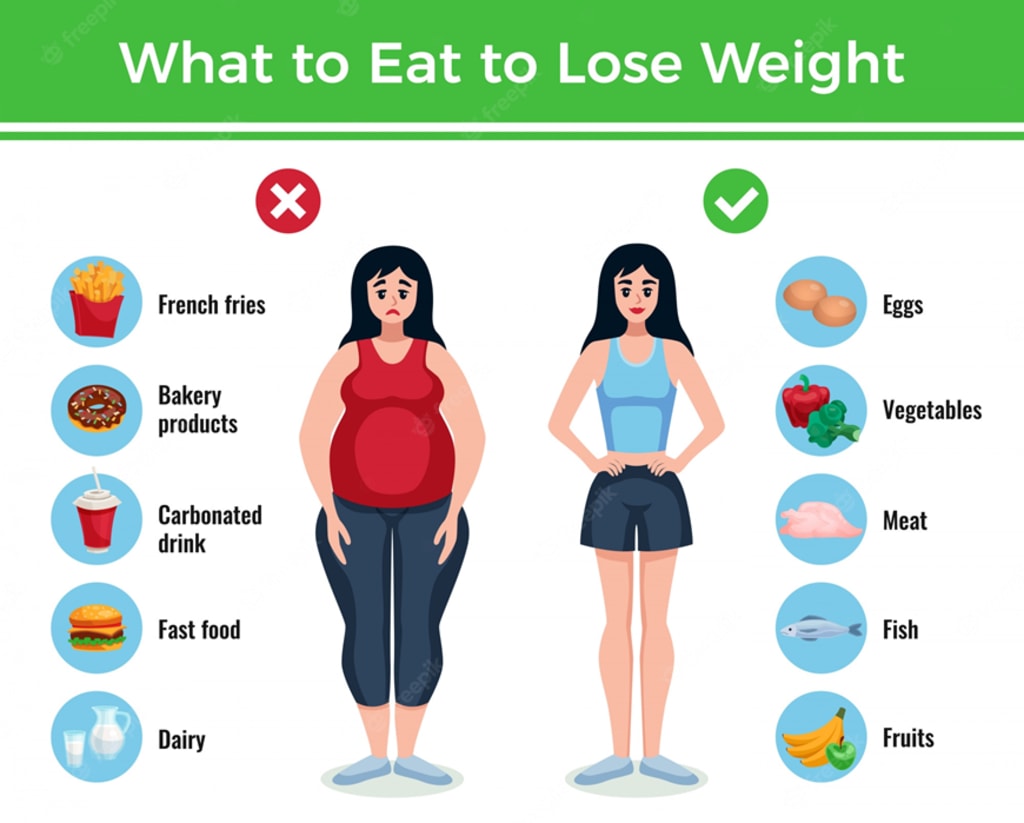Atkins Diet

The Benefits of Following the Atkins Diet
The Atkins Diet has gained popularity over the years as a way to lose weight and improve overall health. Many people have found success with this low-carb, high-protein diet. In this article, we will explore the benefits of following the Atkins Diet and how it can help you achieve your health and weight loss goals.
One of the main benefits of the Atkins Diet is its ability to promote weight loss. By reducing your intake of carbohydrates and increasing your consumption of protein and healthy fats, your body enters a state of ketosis. This means that it starts burning stored fat for fuel instead of relying on carbohydrates. As a result, you can experience significant weight loss, especially in the first few weeks of the diet.
Another benefit of the Atkins Diet is its ability to stabilize blood sugar levels. When you consume carbohydrates, they are broken down into glucose, which raises your blood sugar levels. This can lead to energy crashes and cravings for more carbohydrates. By reducing your carbohydrate intake, you can avoid these spikes and crashes, leading to more stable energy levels throughout the day.
Following the Atkins Diet can also improve your heart health. By reducing your intake of refined carbohydrates and increasing your consumption of healthy fats, you can lower your levels of LDL cholesterol, also known as “bad” cholesterol. This can reduce your risk of heart disease and other cardiovascular problems. Additionally, the Atkins Diet has been shown to increase levels of HDL cholesterol, or “good” cholesterol, which further protects your heart.
In addition to weight loss and improved heart health, the Atkins Diet can also help control cravings and reduce hunger. When you consume carbohydrates, they are quickly digested and can leave you feeling hungry soon after. On the other hand, protein and healthy fats take longer to digest, keeping you feeling fuller for longer periods of time. This can help you avoid unnecessary snacking and overeating, making it easier to stick to your diet and reach your weight loss goals.
Furthermore, the Atkins Diet can improve your overall health by reducing inflammation in the body. Many health problems, such as arthritis, diabetes, and certain types of cancer, are linked to chronic inflammation. By reducing your intake of processed carbohydrates and increasing your consumption of anti-inflammatory foods, such as vegetables, healthy fats, and lean proteins, you can help reduce inflammation and improve your overall health.
Lastly, the Atkins Diet can be a sustainable and enjoyable way of eating. Unlike many other diets that restrict certain food groups or require strict calorie counting, the Atkins Diet allows for a wide variety of foods. You can still enjoy delicious meals while following the diet, as long as you make smart choices and focus on whole, unprocessed foods. This makes it easier to stick to the diet long-term and maintain your weight loss results.
In conclusion, the Atkins Diet offers numerous benefits for those looking to lose weight and improve their overall health. From promoting weight loss and stabilizing blood sugar levels to improving heart health and reducing inflammation, this low-carb, high-protein diet can help you achieve your health and weight loss goals. So why not give it a try and see the benefits for yourself?
Atkins Diet: A Comprehensive Guide for Beginners
Are you tired of trying different diets that promise quick weight loss but leave you feeling unsatisfied and hungry? If so, the Atkins Diet might be the solution you’ve been looking for. This comprehensive guide will walk you through the basics of the Atkins Diet and provide you with all the information you need to get started.
The Atkins Diet is a low-carb, high-fat diet that was developed by Dr. Robert Atkins in the 1960s. It is based on the principle that by reducing your carbohydrate intake, your body will switch from burning glucose for energy to burning stored fat. This process, known as ketosis, can lead to rapid weight loss and improved overall health.
One of the main reasons why the Atkins Diet is so popular is because it allows you to eat a wide variety of delicious foods. Unlike other diets that restrict certain food groups, the Atkins Diet focuses on controlling your carbohydrate intake while still allowing you to enjoy foods like meat, fish, eggs, and vegetables. This means that you don’t have to give up your favorite foods in order to lose weight.
When following the Atkins Diet, you will go through four different phases: the induction phase, the balancing phase, the fine-tuning phase, and the maintenance phase. During the induction phase, which lasts for two weeks, you will restrict your carbohydrate intake to 20 grams per day. This will help jumpstart ketosis and kickstart your weight loss journey.
After the induction phase, you will gradually increase your carbohydrate intake during the balancing phase. This phase allows you to add more variety to your diet while still maintaining ketosis. The fine-tuning phase comes next, where you will continue to adjust your carbohydrate intake until you reach your weight loss goals. Finally, the maintenance phase is all about finding the right balance of carbohydrates to maintain your weight loss long-term.
One of the biggest misconceptions about the Atkins Diet is that it is a high-protein diet. While protein is an important part of the diet, it is not the main focus. Instead, the Atkins Diet emphasizes healthy fats as the primary source of energy. This means that you can enjoy foods like avocados, nuts, and olive oil while still losing weight.
Another important aspect of the Atkins Diet is the concept of net carbs. Net carbs are calculated by subtracting the grams of fiber and sugar alcohols from the total grams of carbohydrates in a food. This allows you to focus on the carbohydrates that have the biggest impact on your blood sugar levels, while still enjoying foods that are high in fiber.
In conclusion, the Atkins Diet is a low-carb, high-fat diet that can help you lose weight and improve your overall health. By following the four phases of the diet and focusing on healthy fats and net carbs, you can achieve your weight loss goals while still enjoying delicious foods. So why wait? Give the Atkins Diet a try and see the results for yourself.
Exploring the Science Behind the Atkins Diet
The Atkins Diet has been around for decades and has gained a lot of popularity among those looking to lose weight. But what exactly is the science behind this diet? How does it work? Let’s dive in and explore the ins and outs of the Atkins Diet.
At its core, the Atkins Diet is a low-carbohydrate diet that focuses on consuming high amounts of protein and fat. The idea behind this is that by drastically reducing your carbohydrate intake, your body will enter a state of ketosis. Ketosis is a metabolic state where your body burns fat for fuel instead of carbohydrates.
So, how does this happen? When you eat carbohydrates, your body breaks them down into glucose, which is then used as the primary source of energy. However, when you restrict your carbohydrate intake, your body starts to deplete its glycogen stores. This forces your body to switch to burning fat for energy, resulting in weight loss.
But it’s not just about weight loss. Supporters of the Atkins Diet claim that it can also improve various health markers, such as blood sugar levels and cholesterol levels. By reducing your carbohydrate intake, you can stabilize your blood sugar levels and prevent spikes and crashes. This can be particularly beneficial for individuals with diabetes or insulin resistance.
Additionally, the Atkins Diet promotes the consumption of healthy fats, such as avocados, nuts, and olive oil. These fats are rich in monounsaturated and polyunsaturated fats, which have been shown to improve heart health and reduce the risk of cardiovascular diseases.
However, it’s important to note that the Atkins Diet is not without its critics. Some argue that the diet is too restrictive and can lead to nutrient deficiencies. Since the diet limits the consumption of fruits, vegetables, and whole grains, it may be challenging to meet your daily nutrient requirements.
Furthermore, the long-term effects of the Atkins Diet are still not fully understood. While some studies have shown short-term weight loss and improvements in certain health markers, more research is needed to determine the diet’s long-term effects on weight maintenance and overall health.
It’s also worth mentioning that the Atkins Diet may not be suitable for everyone. Individuals with certain medical conditions, such as kidney disease, may need to avoid high-protein diets like Atkins. It’s always best to consult with a healthcare professional before starting any new diet or making significant changes to your eating habits.
In conclusion, the Atkins Diet is a low-carbohydrate diet that aims to promote weight loss and improve various health markers. By reducing your carbohydrate intake and increasing your consumption of protein and healthy fats, your body enters a state of ketosis, where it burns fat for fuel. While the diet has its supporters and has shown short-term benefits, more research is needed to fully understand its long-term effects. As with any diet, it’s important to consult with a healthcare professional before making any drastic changes to your eating habits.









